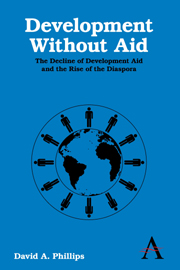Book contents
- Frontmatter
- Contents
- List of Acronyms
- Acknowledgments
- 1 Introduction: Motivation and Perspective
- 2 What Is Foreign Aid, Who Does It, Why and How Much Is There?
- 3 How Far Has Development Aid Been Effective?
- 4 Why Has Development Aid Done So Little?
- 5 Changing the Dynamics of Development
- 6 “New Aid”: New Ways to Promote and Finance Development?
- 7 Another Pathway Out of Poverty?
- 8 Exit Strategy – Replacing Foreign Assistance
- 9 Postscript
- Notes
- Index
1 - Introduction: Motivation and Perspective
Published online by Cambridge University Press: 05 July 2013
- Frontmatter
- Contents
- List of Acronyms
- Acknowledgments
- 1 Introduction: Motivation and Perspective
- 2 What Is Foreign Aid, Who Does It, Why and How Much Is There?
- 3 How Far Has Development Aid Been Effective?
- 4 Why Has Development Aid Done So Little?
- 5 Changing the Dynamics of Development
- 6 “New Aid”: New Ways to Promote and Finance Development?
- 7 Another Pathway Out of Poverty?
- 8 Exit Strategy – Replacing Foreign Assistance
- 9 Postscript
- Notes
- Index
Summary
International development cooperation has achieved many positive results. When we met in Monterrey a decade ago, we recognised that increases in volumes of financing for development must be coupled with more effective action to generate sustainable and transparent results for all citizens. Our dialogue in Busan builds on the foundations laid by previous High Level Fora, which have been proven to remain relevant, and which have helped to improve the quality of development cooperation.
“Partnership for Effective Development Cooperation,” Fourth High Level Forum on Aid Effectiveness, Busan, South Korea, 1 December 2011, par. 6Development aid, far from being necessary to rescue poor societies from a vicious circle of poverty, is far more likely to keep them in that state.
Peter T. Bauer (1993)A Starting Point
This book is ultimately a personal reflection rather than an academic treatise, and so, while as far as possible remaining objective and supported by evidence, it is in the end as much advocacy as argument, at times taking the risk of verging on the polemical. It aims to open up perspectives as much as analyze facts. It is about the development of poor countries, not the principles of how societies and economies develop but the narrower canvas of development assistance to poor countries, its effectiveness and whether there is a different way to achieve its objectives. It aims, in fact, to help move the perception of the path to development in poor countries squarely beyond development assistance and beyond the discussion of its architecture, design and practice.
- Type
- Chapter
- Information
- Development without AidThe Decline of Development Aid and the Rise of the Diaspora, pp. 1 - 12Publisher: Anthem PressPrint publication year: 2013



